Phonics recognition Letter Sounds Worksheets for Ages 4-8
7 filtered results
-
From - To
Discover our engaging Phonics Recognition Letter Sounds Worksheets designed for children ages 4-8! Ideal for early learners, these worksheets enhance foundational literacy skills by helping kids recognize sounds associated with each letter of the alphabet. Fun and interactive activities foster a love for learning while developing phonics skills essential for reading. Our colorful and diverse worksheets are perfect for both classroom and home use, catering to various learning styles. Track progress easily as children gain confidence in their reading abilities. Start your child's literacy journey today with our collection of phonics worksheets that make learning letter sounds exciting and effective!
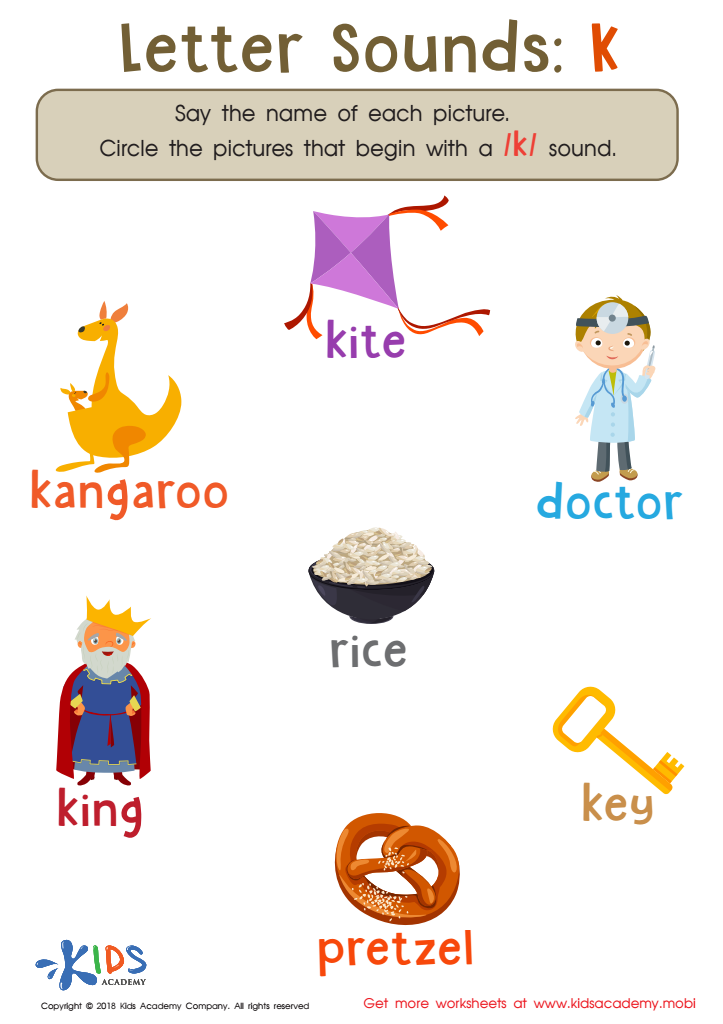

Letter K Sounds Worksheet
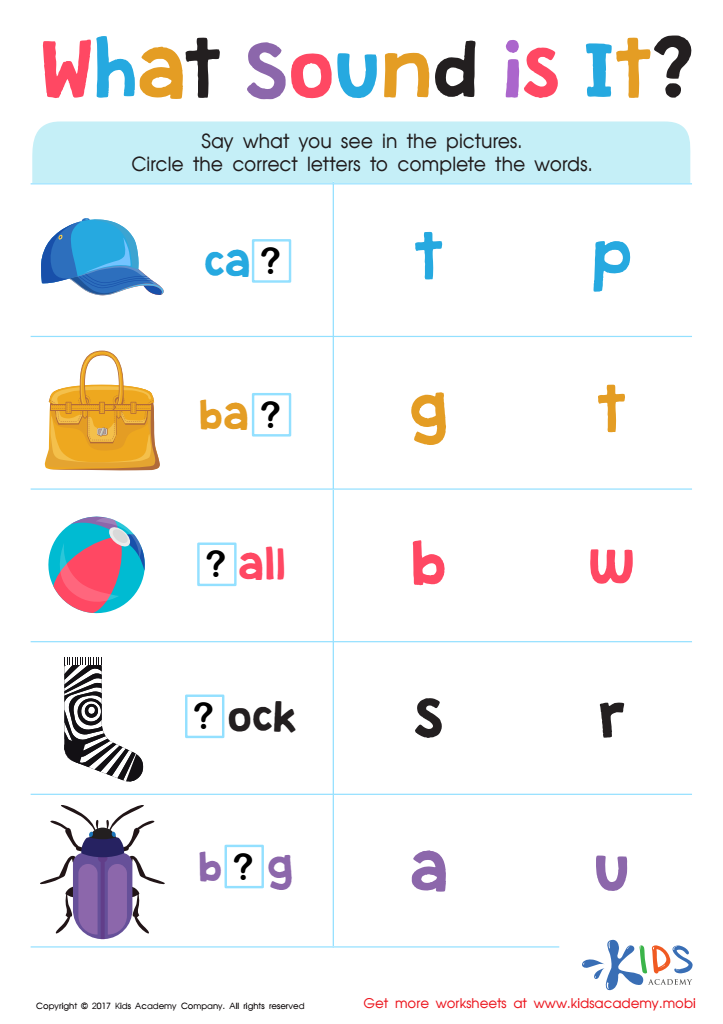

What Sound Is it? Worksheet
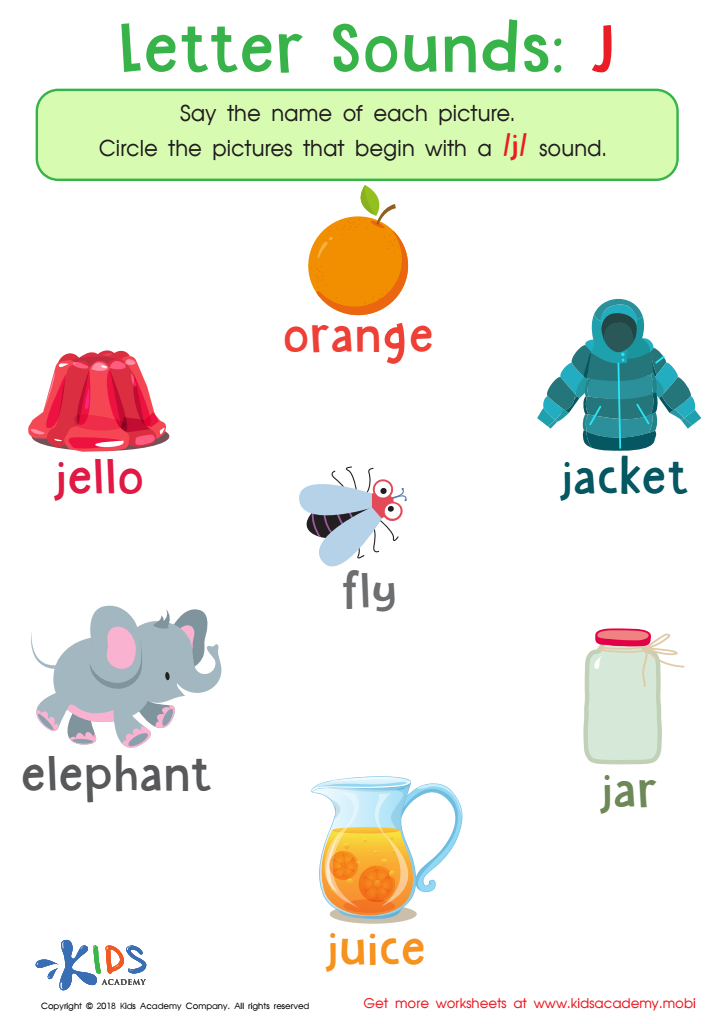

Letter Sounds: J Printable Worksheet
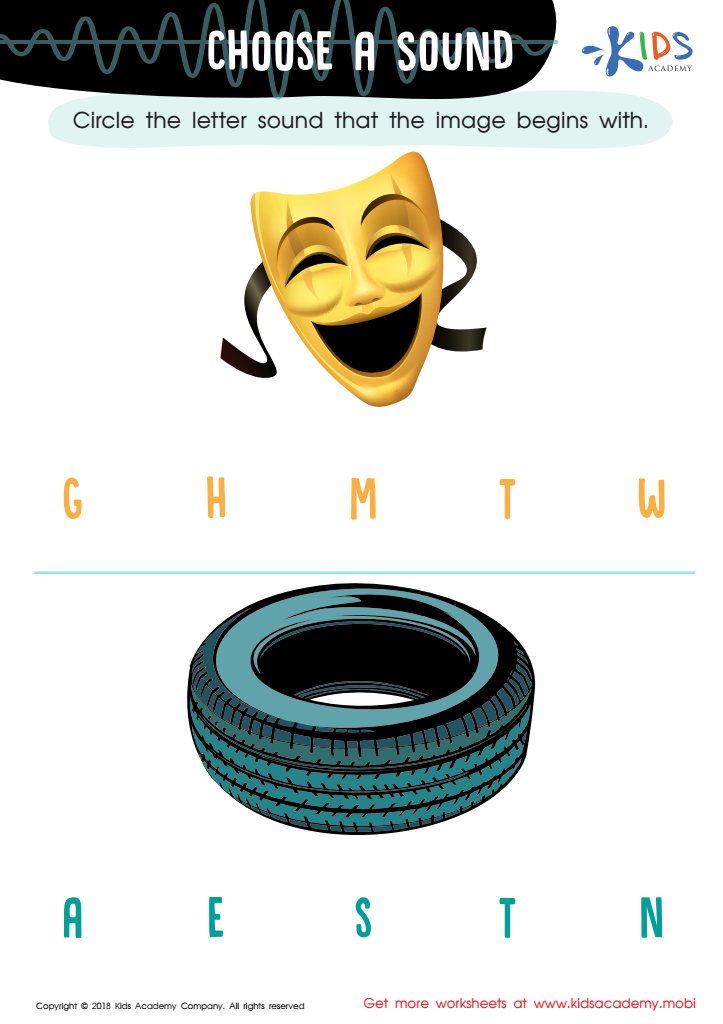

Choose a Sound Worksheet
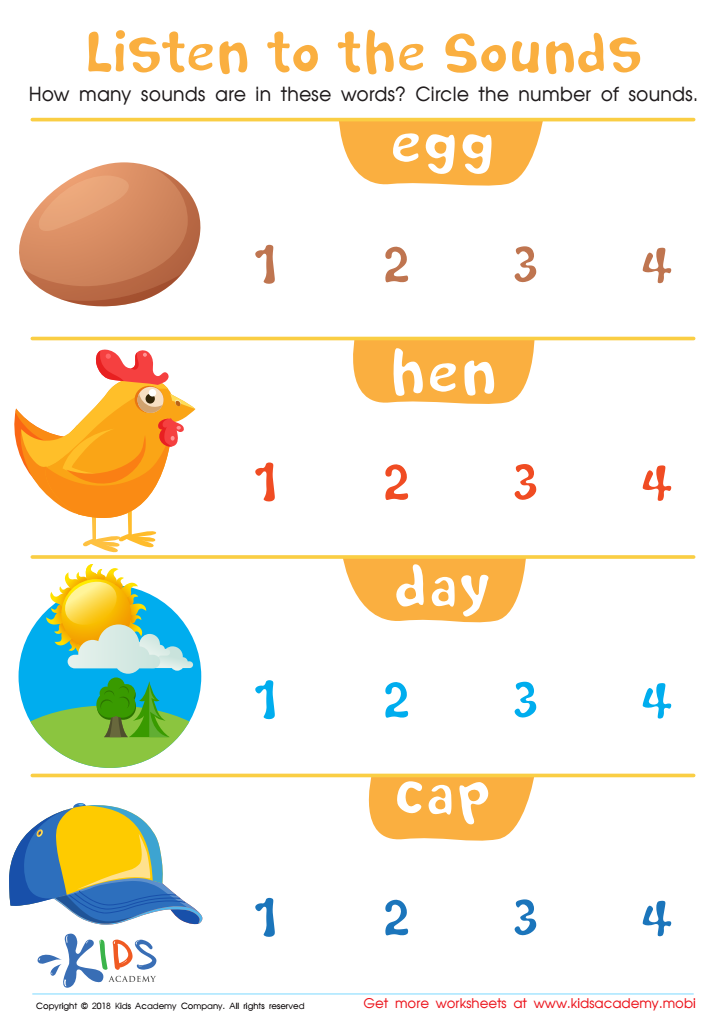

Listen to the Sounds Worksheet
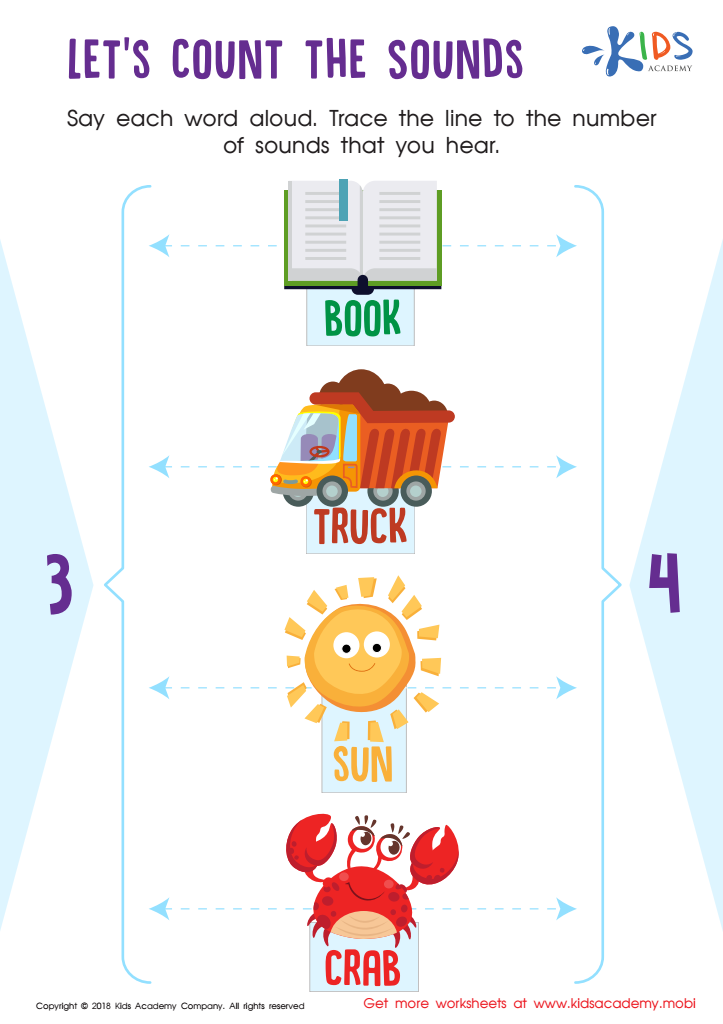

Let's Count the Sounds Worksheet
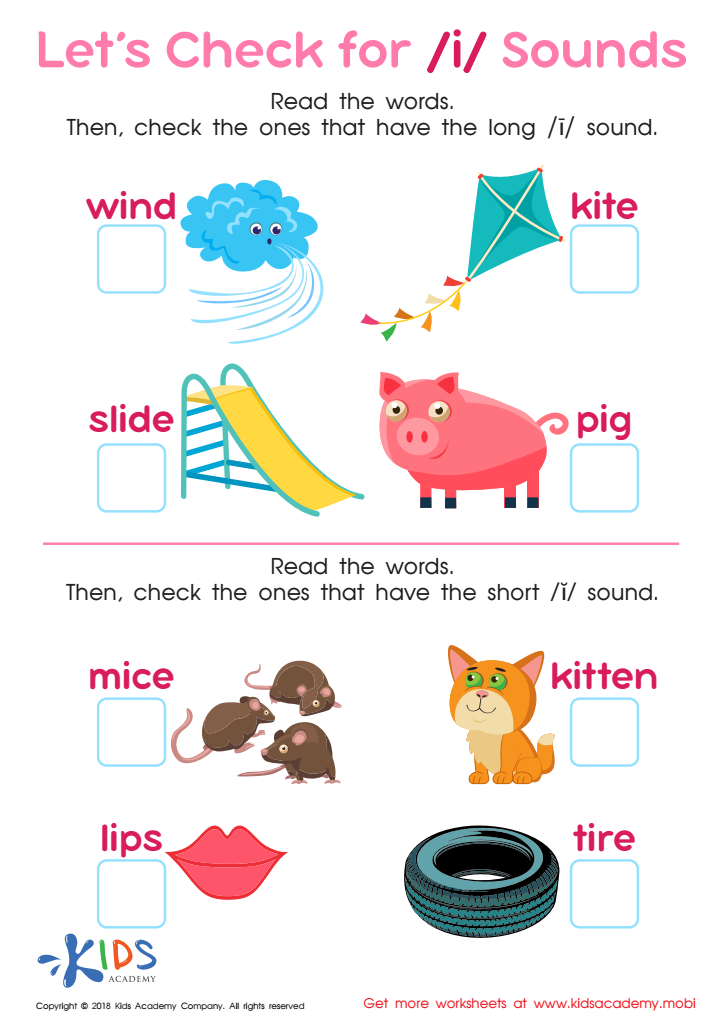

Let's Check for «i» Sounds Worksheet
Phonics recognition and letter sound awareness are fundamental skills for children aged 4 to 8, serving as the building blocks for reading and writing proficiency. These early literacy skills help young learners connect letters with their respective sounds, which is crucial for decoding words. When children understand phonics, they become more confident readers, enabling them to engage with texts meaningfully.
Additionally, phonics instruction promotes language development by expanding vocabulary and enhancing comprehension. Research shows that children who grasp phonics tend to perform better in all areas of literacy, thus leading to increased academic success. When parents and teachers prioritize phonics, they help cultivate a child's love for reading and learning, setting a solid foundation for future educational achievements.
Moreover, phonics practices can support children's social-emotional growth by providing them with the skills to express themselves and navigate the world of words. Children gain independent reading capabilities, fostering self-confidence and a sense of agency. Ultimately, focusing on phonics recognition and letter sounds is essential for nurturing competent, engaged, and enthusiastic readers, which has a profound long-term impact on their educational journey and lifelong learning.

 Assign to My Students
Assign to My Students



















